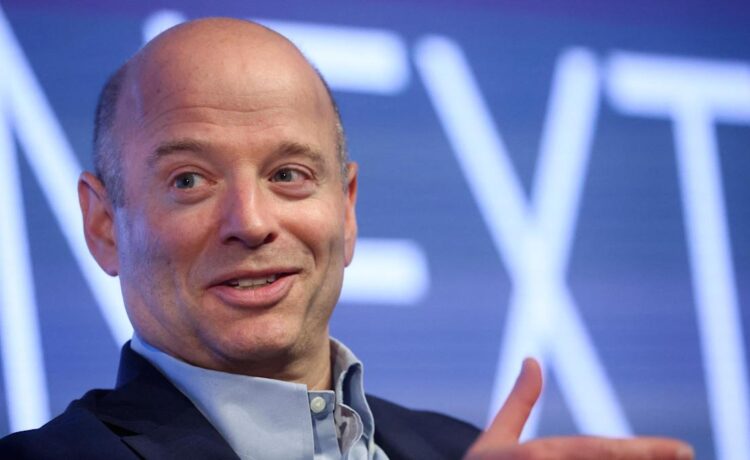00:00 Speaker A
Welcome back. We are going to talk about IPOs. So this week, an IPO hit the market and it’s fair to say it was a roaring success. Design software maker Figma saw its shares soar 250% on its market debut after an upsized IPO that is likely to trigger a flurry of deals for venture capital-backed startups that have waited for years to list. And it looks like the shares will open even higher once the opening bell rings later this morning. The US IPO market has improved over the second quarter. According to S&P Global, there have been 59 offerings raising $15 billion. That’s up from 45 offerings that raised $11.2 billion in Q1. But another major center, London, where the story is not so bright. Fundraising from new listings has fallen to a 30-year low. The London Stock Exchange Group revealed better-than-expected earnings on Thursday, but the market still didn’t like what they heard. Shares fell sharply as you can see, and continue to do so this morning. I managed to catch up with the CEO of LSEG, as it’s better known, for his reaction to their earnings, and whether London can still remain competitive when it comes to attracting new listings.
02:04 Speaker B
Now, you’ve just released results which beat market expectations, and uh a $1.3 billion share buyback as well. What’s behind this performance?
02:19 David Schwimmer
So, very strong first half, 8.7% top-line growth, uh and significant operating margin improvements. Uh operating margin improvement which is something we’ve been working on, uh really driving efficiency throughout the business. We have had good growth across all of the different businesses that I just ran through. And just a moment on our our business model. We have roughly 70% of our business that is recurring subscription style revenue. So, very sticky, very stable and growing attractively. And then we also see roughly 30% of our business as market-related or exposed to transaction volumes. And when you see the kind of volatility that you’ve seen in the first half, we tend to get the benefit from that as well. It doesn’t matter if the markets are going up or down, it’s when there’s activity uh volume transactions repositioning because of the nature of our markets businesses. We see those flows and we see that activity. So a very robust, strong business model with that subscription revenue that’s growing well, and then the revenue that’s associated with the market. So we refer to our our business model as an all-weather model because it tends to work in all environments.
04:14 Speaker B
But so far since the release of your results, the markets haven’t quite liked what they’ve heard though. The stock is down, I think around 7% as we speak right now. Why do you think that is? Is there an issue perhaps with growth?
04:32 David Schwimmer
So we have a metric that we call annualized subscription value growth. Uh and we track that, and uh when we put that out for this uh half year, it’s down a little bit. And we’ve talked about what that is driven by, and we have had a very modest number of uh cancellations and a couple other things in the second quarter that took that down a little bit. And over the last few years it’s been going up, up, up, up. Uh and so I think the market is uh is looking at that. We have always told the market that they shouldn’t focus too much on this metric because it’s very sensitive. We see our uh sales pipeline growing. We see lots of new product coming to market. The business is doing very well across all of our different businesses. So we have a lot of confidence in the direction of travel for this business. But there’s a little bit of sensitivity around that.
05:55 Speaker B
Let’s focus a bit more on the business that perhaps most people know you for, the London Stock Exchange itself. Um it’s fair to say that you’re struggling to attract companies. I think the number of listings is at a 30-year low. Why do you think that is?
06:13 David Schwimmer
I think a couple things around this. First of all, the number of listings on a global basis has declined. And if you look in New York, for example, the number of listings is down by 40% over the last, I don’t know whether it’s 10 10 period 10 years or so. Uh listings in other geographic centers uh have been a real challenge. And that, I think, is in part due to the political, geopolitical environment over the last several years. It’s also because of the availability of private capital. Uh and you can grow into a very large company fully on the backing of private capital. And that has been just a a major driver of uh growth for companies really going back the last 15 years or so. On top of that, we have had a lot of changes in the UK over the last several years in terms of modernizing and reforming the listings regime here. Uh to be fair, if you go back a few years, there were some rules that uh were probably overly conservative, that hadn’t really moved along with how uh markets were operating around the world. And these related to things like dual class share structures. There were approaches to having a very high free float requirement where if companies could become very large companies because of the availability of private capital. And then when they have to go, when they go public, you tell them they have to have a very large free free float, that doesn’t make a lot of sense. So we’ve changed those kinds of things, uh and we have changed, for example, some of the uh conditions in terms of getting into the FTSE index. All of which, all these different aspects have been viewed as very attractive and helpful. So we are now actually seeing a growing pipeline, uh and a growing number of companies looking to uh list here, including as soon as next week. Uh so that has been a bit of a challenge over the last few years, getting much better.
09:03 Speaker B
But New York has been has seen a surge in listings in 2025. We now recently we found out that the UK online payment company Wise is moving its listing from London to New York. How can you compete globally against these these other big houses?
09:21 David Schwimmer
So there are uh many companies where it does not make sense for them to list or go to New York. And
09:40 Speaker B
But Wise is a UK online space. Sure. But let me just give you a couple a couple of statistics around this, because over the last 10 years, 20 companies or so have gone from the UK uh and listed in New York and raised over a hundred million. Okay. Of that 20, three of them, their stock is trading up. Okay. Uh of the rest, I think something like eight of them have delisted. I’m going to get my numbers off a little bit here. Uh and I think of the the remainder, they’re trading down like 70% or so. So I mention that because it’s it’s not always worked out very well for the majority of companies that have gone to do that. Another aspect of some of the challenges of going uh to New York, a lot of companies, if they’re not above a certain size and have a I’ll say a particularly hot story, they get lost. uh in the US capital markets in uh New York. They don’t get the right attention from investors, from research analysts. Uh and so we’ve had conversations with companies like that who are actually looking for an environment where they will get the appropriate attention uh from investors. So, is it a great market for uh some companies? Absolutely. But there are many companies uh where it makes much more sense to be uh listed and trading in the UK. And I should just, you know, remind you, the London Stock Exchange is by far the leading uh capital center and stock exchange for Europe. Uh now which is a very large economic area. There are a lot of other exchanges in Europe, they’re not even close to the London Stock Exchange, and it is also the most international financial center. We get capital from the US, from the UK, from the EU, from the Middle East, from Asia. So uh it in all of those respects it’s actually working very well.



